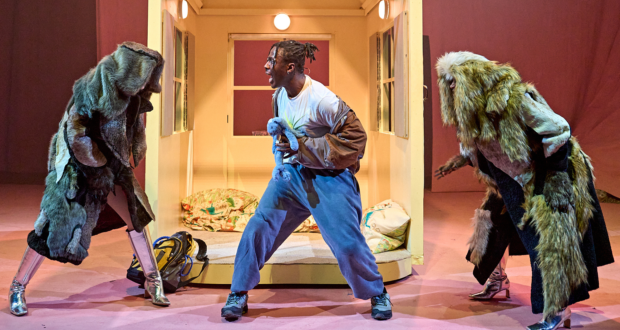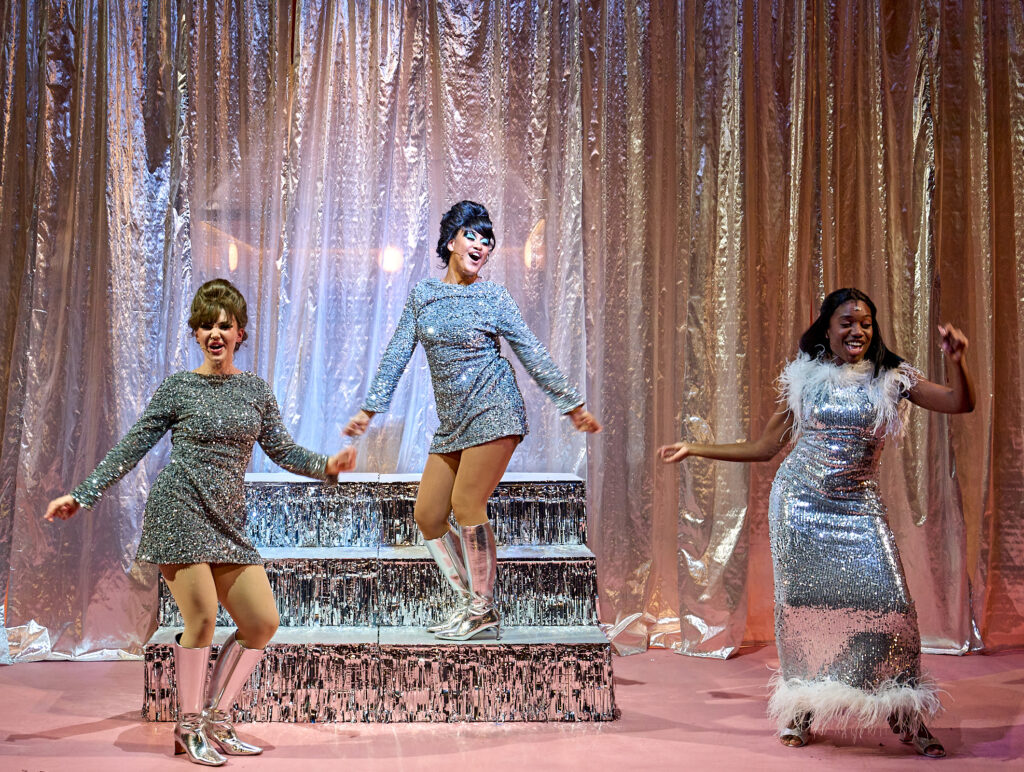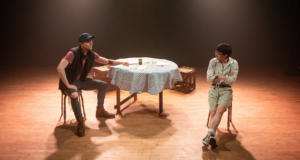Writer Nina Segal chats about Odyssey
The Odyssey is an epic Greek legend: sometimes described as the greatest tale ever told. Based on Odysseus’ arduous return home after the fall of Troy, it tells of gods, perilous journeys and magical adventure. Exciting stuff! This spring at the Unicorn Theatre Nina Segal‘s new stage adaptation for ages 8-13 puts Odysseus’ son Telemachus at the centre of the story. We were delighted that she was able to take a few minutes away from the rehearsal room to tell us all about his quest.
Hi Nina. Thanks so much for taking the time to chat with us about this exciting show. The Odyssey is one of the most popular adventure stories of all time. Why do you think this stage adaptation will appeal to young audiences?
I think, as you say, The Odyssey has a timeless appeal. It’s a classic quest, about a character who begins with one ambition, then spends the rest of the narrative trying to achieve this. For Odysseus, in Homer’s original, his intention is to return home after the Trojan war; in our version, Telemachus – Odysseus’ son – sets out to find his father and to bring him home. We hope the themes we’ve chosen to focus on – of adventure, of leaving home, of the relationship between children and parents, and the transition between childhood and adulthood – will be particularly of interest to our young audience; but should hopefully have wider relevance too.
Why have you chosen to tell the story from Telemachus’ perspective?
I think the choice was very instinctive – both because it allows our audience to connect closely with the character most near to them in age; and also because it allows some distance between ourselves and Odysseus. Both Jen (Tang, director) and I read Emily Wilson’s 2017 translation of The Odyssey – the first line of which is ‘Tell me about a complicated man’, which is a perfect introduction to the character. Odysseus is complicated and, especially from a contemporary perspective, far from perfect. The original story has some quite shocking elements of violence. Reframing the events from Telemachus’ perspective allows us to manage this appropriately for our audiences; and to examine the question of how we view our own parents, and what we do when we (almost inevitably) realise that they’re imperfect too.
What themes can we expect to find in this play?
It’s a play about a journey – about setting out from home to find someone and being changed yourself along the way; and it’s a play about parents and children, about what we inherit from the people who raised (or maybe didn’t raise) us, and about what we choose to do with that inheritance.
Your version of the story is accompanied by 60s soul music. Sounds like fun! Where did that idea come from?
Early in the process, Jen and I were thinking about ‘gods’ – the original Greek myth is full of gods, watching events unfold and intervening along the way. In thinking about how we might update the narrative, we asked ourselves – who takes the place of gods in our contemporary society? The instinctive answer for us was pop stars! From there, the idea of a sort-of sixties girl band was formed – these glorious, glamorous women, who are in some way elevated from normal life.
Tell us a bit about your cast and creatives. Who’s on board for this epic adventure?
We have an amazing company of actors: Shaka Kalokoh as Telemachus, Cash Holland as his mother Penelope, and Cerys Marie Burton and Kimmy Edwards as the Muses. Cash also plays an array of otherworldly creatures, whilst Cerys and Kimmy also multi-role as Trojans, Ithacans, sheep, sirens bouncers and wild beasts. On the creative side, we have a brilliant company: Jen Tang as director, Naomi Hammerton as composer, Rosie Elnile as designer, Chi-San Howard on movement, Jessica Hung Han Yun on lighting, Ellie Isherwood on sound, and Virginie Taylor on video.
Is this your first experience of writing for young audiences? How have you found it, and would you do it again?
I’ve written a short play for The Unicorn before, but I’ve always dreamed of having a full-length play on here. The Unicorn is one of my favourite theatres in London – they make bold, fun, experimental work, for the best audiences around. Young audiences are magic – they respond with such honesty and joy. It’s a real thrill to be sharing The Odyssey with them. I feel very lucky to have been able to make this show.
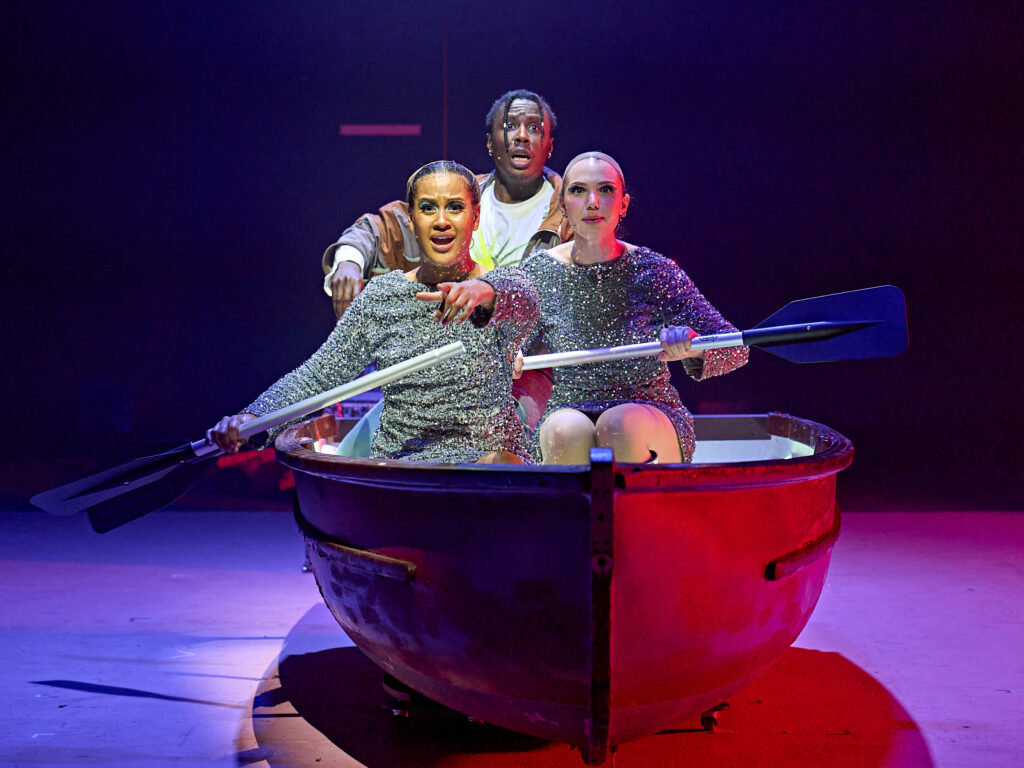
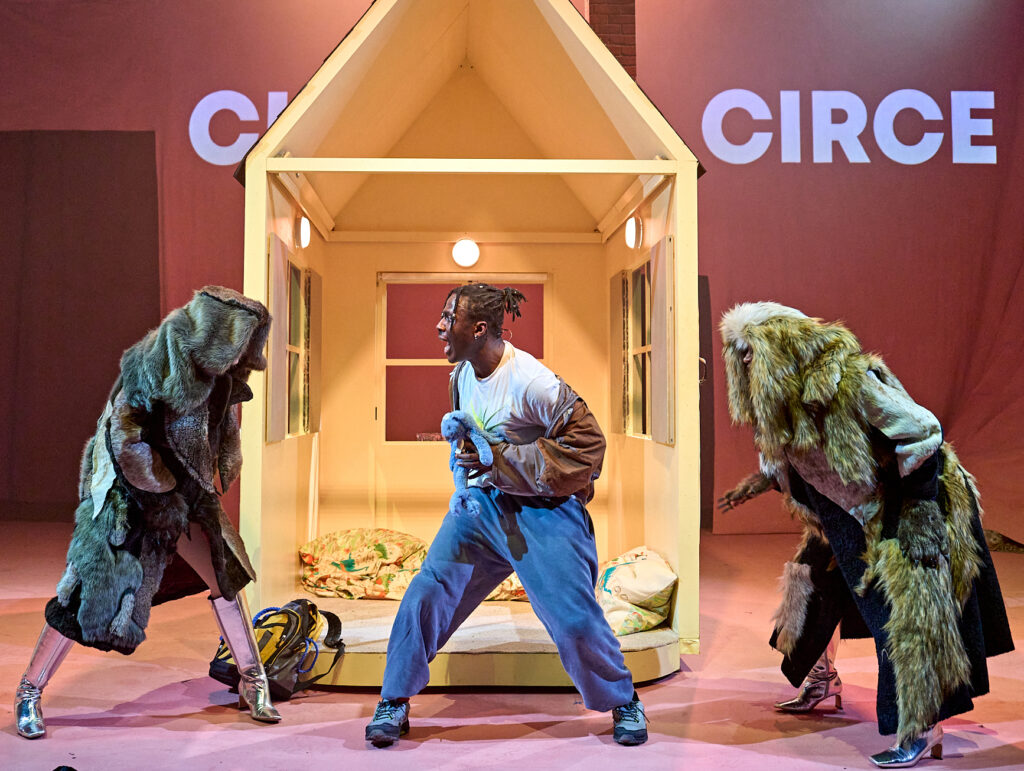
Thanks very much to Nina for taking the time to tell us all about her updated epic. The Odyssey is aimed at ages 8-13 and runs at the Unicorn Theatre until Sunday 21 April. Booking details can be found here.
 Everything Theatre Reviews, interviews and news for theatre lovers, London and beyond
Everything Theatre Reviews, interviews and news for theatre lovers, London and beyond
